C. Litka's Blog, page 11
March 30, 2025
The Saturday Morning Post (No. 100) EXTRA! EXTRA!

A milestone of sorts. My 100th book review in this format. I'm reading a fair amount of books these days, and not because I have a weekly book review slot to fill. No, I'm just back into reading, and luckily enough to stumble upon books that I enjoy reading, as I hope you have gathered from all my previous posts.
So what do we have this week? A bit of a break a return, once again, to last year's old standby in a special double book review!
My reviewer criteria. I like light, entertaining novels. I like smaller scale stories rather than epics. I like character focused novels featuring pleasant characters, with a minimum number of unpleasant ones. I greatly value clever and witty writing. I like first person, or close third person narratives. I dislike a lot of "head jumping" between POVs and flashbacks. I want a story, not a puzzle. While I am not opposed to violence, I dislike gore for the sake of gore. I find long and elaborate fight, action, and battle sequences tedious. Plot holes and things that happen for the convenience of the author annoy me. And I fear I'm a born critic in that I don't mind pointing out what I don't like in a story. However, I lay no claim to be the final arbitrator of style and taste, you need to decide for yourself what you like or dislike in a book.
Your opinions are always welcome. Comment below.
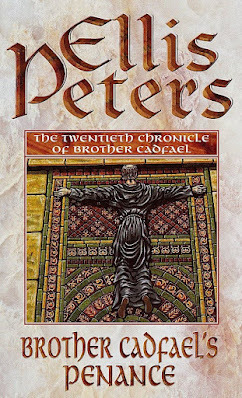
Brother Cadfael's Penance by Ellis Peters B
This is, alas, the last novel featuring Brother Cadfael. I have several short stories to read to wrap up this saga - see below - which tell of his early years, so this is where we must take leave of Brother Cadfael.
Once again there is a murder, and once again, it hardly matters at all, save to drive the plot. This is not a murder mystery in any sense, but a historical novel of a quest that Brother Cadfael undertakes to find his son, said to be held captive, without a ransom after one of the castles held by Empress Maud switches sides to King Stephen. Those who preferred to stay loyal to Empress Maud where taken and held for ransom, save for Brother Cadfael's son. No one knows what happened to him. He feels compelled to leave the monastery and search for him, getting limited permission to accompany his old friend the Sheriff to a peace conference between Maud and Stephen, in hopes of hearing the fate of this son. This proves unsuccessful, and presented with the dilemma of continuing his search, or abandoning his vows of obedience, he finds that he cannot abandon his son.
There is a lot of history, and a lot of characters in this story, making it a bit hard to follow at times, at least when it came to characters - who was who and whom were they for, and how they were related. As usual, I just went with the flow, and gathered what was what from the context. Because of the nature of the story, we no longer have the story centered around the rather cozy life of monk and monastery, and venture out into the war-torn England of the time period. And so, as you can see from my grade, it was not one of my favorites of the series, leaving much of what I like about the series behind for this, the last entry.
The short stories will wrap up this series. I'll miss Brother Cadfael, but as you may've noticed, I've found another writer and another time period to discover and enjoy. Stories very different, but very entertaining in their own unique way. All is good.
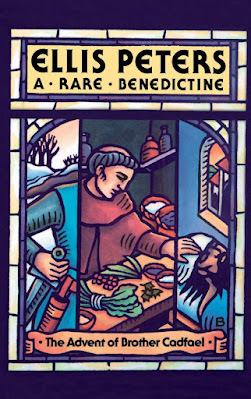
A Rare Benedictine by Elis Peters B
This is a collection of three short stories. In the first one we meet Cadfael a soldier in the service of Roger Mauduit who has been fighting alongside King Henry in Normandy. The war is over, Henry has won, and is returning home to England, as in Mauduit. Mauduit takes Cadfael and a scribe home with him. Mauduit is involved in a civil law case with the Monastery of Shrewsbury over property that was given to the monastery for the life of the giver, but Mauduit does not want to return it, the contract being a little vague. He, or his wife, hatches a plan to ensure a favorable outcome in the case to be tried before the King. Cadfael takes not only a hand in the affair, but decides to become a monk of the abbey.
The second story is about a gift to the abbey, and its theft, and how Cadfael, as usual, bends a few rules to set things right.
And the final one, about the theft of the Abbey's rent money. Nothing too elaborate.
All in all, not up to the standard of the novels, but what can one expect from short stories?
And so, as I said in the lede, this is my fond farewell to Brother Cadfael and Sheriff Hugo. A great series of books. We'll have to see what I can turn up next. I did enjoy that series about a detective nun in Tutor times, I believe...
March 29, 2025
The Saturday Morning Post (No. 99)

This week we're giving Jane Austen another go.
My reviewer criteria. I like light, entertaining novels. I like smaller scale stories rather than epics. I like character focused novels featuring pleasant characters, with a minimum number of unpleasant ones. I greatly value clever and witty writing. I like first person, or close third person narratives. I dislike a lot of "head jumping" between POVs and flashbacks. I want a story, not a puzzle. While I am not opposed to violence, I dislike gore for the sake of gore. I find long and elaborate fight, action, and battle sequences tedious. Plot holes and things that happen for the convenience of the author annoy me. And I fear I'm a born critic in that I don't mind pointing out what I don't like in a story. However, I lay no claim to be the final arbitrator of style and taste, you need to decide for yourself what you like or dislike in a book.
Your opinions are always welcome. Comment below.
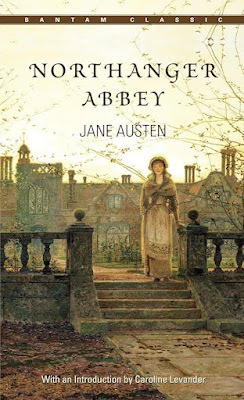
Northanger Abbey by Jane Austen C+
This is Jane Austen's first novel. She wrote it, sold it, but it was never published. She bought it back, but even then it was only published after she died. This is a novel where the writer is explicitly telling you a story, in that she comments on her story and characters as she goes along. I find that this technique puts the story at some remove. The characters, in the end, remain just that characters. On the plus side, it allows the writer to make witty and clever comments, which, as regular readers of this series knows, is my bread and butter when it comes to reading. And in this respect Jane Austen doesn't disappoint, at least in the first half of this novel. The second half is a bit more dramatic, though it is still poking fun at romantic novels with old, creepy castles and eerie intrigues.
The story concerns Catherine, a young woman of 17, one of a large, happy family of a man of the cloth, is offered a chance to visit the fashionable waterhole of Bath as a companion of a wealthy neighbor. In Bath we are treated to a description of polite society killing time, while the young people look for romance, or rather a wealthy enough suitor. Along the way she meets several new female friends, one is Isabella, and the other Eleanor Tilney, whose brother, one Henry Tilney she finds she's fallen in love with. Meanwhile Isabella falls in love with Catherine's brother, an Oxford scholar studying to be a minister, like his father. There are the usual mishaps and misunderstandings, one can expect in a romance.
Halfway through the book, Catherine is offered the opportunity to go with Eleanor, Henry, and their father, General Tilney, to their grand home, Northanger Abbey. General Tilney is a rather creepy and demanding father, and at least Catherine finds an air of mystery in Northanger Abbey. Since I don't like to spoil stories, I won't say anything more about the events in Northanger Abbey.
I found this story very amusing, in parts, with often keen and cutting observations on the society of the day. That said, the style of its narration, and rather old fashioned dialog, which, however cleverly worded, reads more like speeches, rather than conversations, and the remoteness of the characters by portraying them a mere characters detracted from my enjoyment. I think that in general this is probably considered by most, her weakest work, no doubt by virtue of it being her first adult novel, so I think I'm in good company with my opinion. I think Emma will be the next Austen book I try, when I get back to her.
March 26, 2025
The Not A Novel Novel

I recently read a series of books, written in a diary format, none of which could really be called a complete novel, at least individually. Nevertheless they spin a wonderful story. All sorts of events take place. There are lines, well, threads, of plots running through the books, but there are so many of them, many seemingly leading nowhere, only to reappear and disappear in the next book. Characters are introduced, expanded upon, and yet remain mysterious.
But what is missing, at least as far as I can determine, is the rigid structure writers often use to construct a story. Still, the author says that she has an overarching plot, and knows where the story's going, but it will take 18 or 24 books to get there. As such, this is overarching plot is indistinguishable from the quantumness of life itself. I think this is wonderful. There's no three acts to be found in the books. at least that I can distinguish. The cat in the story doesn't have to be saved. And yet, I found that I had to limit myself each day on the time I spent reading these books, so as not to race through them too fast... Even so, eight books in two weeks... Plots, who need plots?
Some readers do. There are, no doubt, readers who do want and expect a plot, and will complain if there doesn't seem to be one in books that may be more focused on characters or ideas. I'm not one of them. I want pleasant characters, themes of friendship, and clever, witty writing and dialog. Give me that, and I'm very happy without a plot, or even a story. That then, is my bias when I say that I greatly appreciate the seemingly unstructured approach this author has taken with her books, even if they are not as unstructured as they appear.
As I see it, life generally doesn't unfold in three acts. Well, maybe for some people, who live crisis to crisis, drama to drama, it does, but for most, its a series of, well, one damn thing after another damn thing, with, hopefully, a few bright things liberally tossed in as well. And I see no reason why fiction needs to make life so artificial to fit comfortably into a book in three acts. It's the journey rather than the destination sort of thing. I'm all in on the journey with good and witty company, and in no hurry to arrive. I suspect, however, that a lot of plot orientated readers care little for the writing itself, as long as it carries them to the destination. Everyone has their own tastes, so I give them their joy, even if it's not mine.
My bias is also reflected in my writing. I never think of my books in terms of acts, or cats. I simply want to tell some sort of story and tell it as entertainingly as I can. Now I do try to have some sort of satisfactory destination, but I try to arrive there naturally, and then, leave the door open for my characters to live on, their lives unrecorded.
By writing in the first person, the story is being told by a character from within the story itself. And I make it a point to have the narrator tell the story from within the story as it progresses, meaning that even as the narrator is "telling" the reader the story, he doesn't know how it ends himself. In several of my books, I use something like a diary format, used in the series of books that inspired this post, but not a believable diary, as no one would remember and record all the dialog I use as a diary-like entry. While recording a story in the middle of it makes for somewhat less that "proper" tenses at times, it conveys the idea that the narrator is in jeopardy, something that is missing when the narrator tells the entire story looking back on it. The one thing I don't like is stories told by old people telling stories of their youth. My characters don't get old. That has been my fate.
Most importantly, I do not want to see or sense the hand of the author in the structure of the novels I read. For me, when I see the hand of the author building the structure of a story, and making puppets of their characters, that curtain between the Mighty Oz and the little man in the corner, is ripped away. I become aware of the inauthenticity of the world, the characters that the author meant to bring to life. To heck with drama. I want life.
Reviews of the books that inspired this post are coming in April. Stay tuned.

March 23, 2025
The Saturday Morning Post (No. 98) EXTRA! EXTRA!
A SPECIAL SUNDAY EDITION OF THE SATURDAY MORNING POST
At the time I'm posting this piece in mid-March 2025, I've read, or at least tried to read, 31 books so far this year. A number of them have been novellas, and others DNFs but clearly posting one book review a week isn't going to work. I've been doubling up some and you can expect to see more extra issues until I get the backlog down to two moths, eight postings. I have a 16 post backlog at the moment.

Get used to it. There are plenty more where this one came from.
My reviewer criteria. I like light, entertaining novels. I like smaller scale stories rather than epics. I like character focused novels featuring pleasant characters, with a minimum number of unpleasant ones. I greatly value clever and witty writing. I like first person, or close third person narratives. I dislike a lot of "head jumping" between POVs and flashbacks. I want a story, not a puzzle. While I am not opposed to violence, I dislike gore for the sake of gore. I find long and elaborate fight, action, and battle sequences tedious. Plot holes and things that happen for the convenience of the author annoy me. And I fear I'm a born critic in that I don't mind pointing out what I don't like in a story. However, I lay no claim to be the final arbitrator of style and taste, you need to decide for yourself what you like or dislike in a book.
Your opinions are always welcome. Comment below.
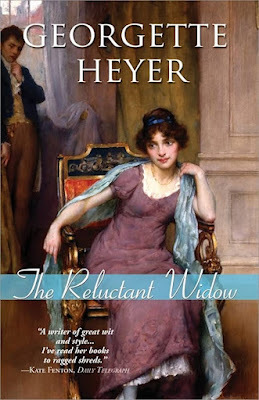
The Reluctant Widow by Georgette Heyer B+
Elinor Rochdale, age 26, is a woman of good birth whose father gambled away his fortune, leaving his widow and daughter destitute. Now alone in the world, Elinor is forced to make a living as a governess. Arriving on the stage coach late in a village for her next job, she is expecting someone to meet her. And indeed, there was someone, though it turns out, there were supposed to be two young ladies to be picked up, and one did not show, so that Elinor was picked up in place of the second young lady, her proper ride had not shown up yet. She is taken in a fine coach to a run-down mansion and there she meets Lord Carlyon, who assumes that the is the young lady he had engaged via an newspaper advertisement, the one who didn't show up.
It seems that Lord Carlyon has been looking after a wild nephew. This nephew has come to hate him, even as Carlyon has tried to do all he could for him. The nephew is rapidly drinking himself to death. As it stands, Lord Carlyon would inherit the nephew's estate when he dies, and fears that his actions would appear as if he is profiting from his guardianship of his nephew. The nephew, hating Lord Carlyon, wants to keep his estate (what is left of it) out of his Uncle's hands, and one way to do that would be to have a wife to leave it to. This arrangement suits Lord Carlyon as well, and for his reasons I has advertised for a wife for his nephew. As it turns out, just in time, and the nephew is severely wounded in a drunken fight, so if he's to get married on this side of the grave, there are only a few hours to do so. It is up to Lord Carlyon to talk a very reluctant Elinor into marry his dying nephew, and only the dreary prospect of being a governess the rest of her life, finally brings her around to agreeing to get married to the dying nephew.
Add to this set up a possible French spy, various new relatives, a young cousin with a rather wild, but goodhearted dog living in her "husband's" rather rundown estate with secret passages, and you have another Georgette Heyer Regency romance/mystery.
March 22, 2025
The Saturday Morning Post (No. 97)

What can I say?
My reviewer criteria. I like light, entertaining novels. I like smaller scale stories rather than epics. I like character focused novels featuring pleasant characters, with a minimum number of unpleasant ones. I greatly value clever and witty writing. I like first person, or close third person narratives. I dislike a lot of "head jumping" between POVs and flashbacks. I want a story, not a puzzle. While I am not opposed to violence, I dislike gore for the sake of gore. I find long and elaborate fight, action, and battle sequences tedious. Plot holes and things that happen for the convenience of the author annoy me. And I fear I'm a born critic in that I don't mind pointing out what I don't like in a story. However, I lay no claim to be the final arbitrator of style and taste, you need to decide for yourself what you like or dislike in a book.
Your opinions are always welcome. Comment below.
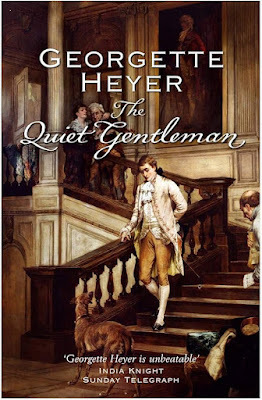
The Quiet Gentleman by Georgette Heyer B+
The premise of this story is that the young seventh Earl, Gervase St Erth, the heir to the estate returns home, alive, after serving in the British Army during the Napoleonic Wars. His half brother, Martin, and step-mother feel that this is unfortunate, and indeed, resent his return, since his half-brother has long considers himself the rightful heir, seeing that was much favored over his older half-brother, who was held in some disfavor by his father, since he reminded him of his wife who had run off with another man. There is also his cousin Theo, who has been running the estate for the Earl, and one Miss Drusilla Morville, a neighbor who has been staying at the estate while her parents are away visiting. Though no great beauty, she has great kindness and level-headed common sense. We also have a young, beauty, who looks to inherit a great deal of money someday, that Martin is in love with. And a dashing, titled and wealthy, army friend of the Earl who comes to visit him. Mix all together, with someone seemingly trying to kill Gervase St Erth and you have another Georgette Heyer Regency romance/mystery story.
As I have often said, I love clever, witting writing over plot. I like interesting, and peasant characters. I love cleaver and witty dialog. I like a bit of romance. And I want to be taken to another world or another time when I read. So far all of the Georgette Heyer books I've read provide all of my requirements for a great read. Luckily she wrote a lot of them, and most are available as ebooks from the library. In addition, she wrote mysteries as well, which I might also give a try when I have exhausted her Regency era book. And I gather she also wrote several other non-Regency history novels as well. I'm set for a while, it seems.
March 19, 2025
Like, Comment, Subscribe.

Nope. Too old, too learn new tricks. Hitting the like button is one of those things I almost never do. Commenting is something I'm trying to give up, and I limit subscribing to YouTube channels. I'm just too old for all these newfangled things. And, I guess I was a decade or more ago when they first began to appear.
Perhaps the main reason I've never to those things, is that I've (almost) never been on social media, other than this blog. If this is considered social media. I'm not a social person, so social media never appealed to me. A blog was considered a must for authors back in the day, which is why I'm here.
My wife signed on to Facebook when the kids went away to college, and she's still on it, playing Scrabble and Words With Friends with sisters and friends. But the only social site I've tried, for half a year, was Discord. I signed on to two servers, one for a SF blog to discuss SF, and the other by an fantasy author who wanted to create a community of writers. I thought that the fantasy author's Discord server might be a way to talk about writing with other writers. It was, but not in any very deep, consistent or satisfactory way. Discord is a product of the time - of smartphones, texting and such, where short form content, a sentence or two is the rule. That is alien to me. I like words. Lots of words. I found interacting with people on these servers too disjointed to conduct any sort of satisfactory discussion. I simply could not get my head around short statements, often separated by hours if not days. No doubt regular uses of social media would have no trouble with this. But I did. So I quite Discord.
Likely, because I don't do social media, the concept of "liking" is pretty alien to me as well. Not only am I not in the habit of "liking" everything I read, but I must admit that I don't really see the point of doing so. From my personal point of view, I put this piece out for others to read, knowing that some will like it, others won't, and I'm cool with both. Likes really mean nothing to me, so I really don't use it. It's not that I don't like things, it's that I don't feel the need to click "Like" for everything I read.
As I mentioned, I do subscribe to a number of YouTube channels, but I've never seen any reason to subscribe to blogs. I just bookmark the ones I like to visit, and leave it at that.
Comments is the area that I am trying to work very hard on, as in not commenting. Why? Because I often regret the comments I make. The thing is that words are flat. When I write a comment, I am putting down the words I would say face to face, without all the intonation and body language that would add nuance to what I'm saying. Without those nuances, what the words say to the reader is open to interpretation. When I read them back, it often seems to me that my comment is always about me. Rather than contributing to an ongoing conversation, I'm just using the video or post to talk about myself. I fear that I'm tone deaf when I writing it, and only afterwards do I question what I was doing. This is especially true since it seems that most comments are just complimentary, praising the presenter of the video or writer of the blog for their insights. And like "Like" button, I don't feel the need to always compliment the presenter. Not because I don't like their work, but because I assume that they're not producing their content just to get compliments and/or likes. Rather they are presenting their thoughts for our consideration and/or our entertainment, and having done so, are content. So, given my past regrets about comments, I'm resisting putting my two cents in on the comment sections of videos and blog postings, though, with only partial success. I just don't trust myself to express myself the way I would want to. And who needs my two cents anyway? If you want my two cents, you've found the place where you can find it.
While I don't plan on getting up on my soapbox here every week, I will, as I have in the past, share my views on various subjects related to writing and publishing. Some of them perhaps inspired by blog postings I've read or videos I've watched. Here I have all the time and space I seem to need to set out my views. I always need a lot of time and space to do so. Your comments, however, are always welcomed.
Stay tuned.
March 16, 2025
The Saturday Morning Post (No. 96) EXTRA! EXTRA!

I'm getting quite at home down in this Regency rabbit hole of English high society, "the ton" in the years 1811 to 1820.
My reviewer criteria. I like light, entertaining novels. I like smaller scale stories rather than epics. I like character focused novels featuring pleasant characters, with a minimum number of unpleasant ones. I greatly value clever and witty writing. I like first person, or close third person narratives. I dislike a lot of "head jumping" between POVs and flashbacks. I want a story, not a puzzle. While I am not opposed to violence, I dislike gore for the sake of gore. I find long and elaborate fight, action, and battle sequences tedious. Plot holes and things that happen for the convenience of the author annoy me. And I fear I'm a born critic in that I don't mind pointing out what I don't like in a story. However, I lay no claim to be the final arbitrator of style and taste, you need to decide for yourself what you like or dislike in a book.
Your opinions are always welcome. Comment below.
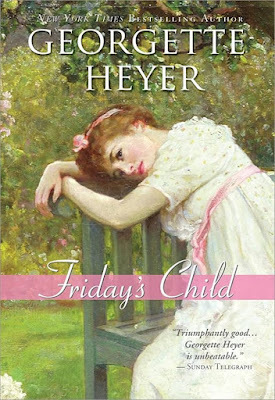
Friday's Child by Georgette Heyer A
This is my favorite Heyer story so far. It is a delightful mashup of Austen and Wodehouse. It is more a comedy more than a Regency romance, or perhaps more accurately, a comedic Regency romance.
Young Lord Sheringham, a rather wild, free-spending, gambling, but kindhearted young man finds his marriage proposal to the beautiful neighbor of his, Incomparable Isabella Milborne rejected. He leaves for London vowing to marry the first woman he meets. He doesn't get far before he meets another childhood friend, the 17 year old Hero Wantage sitting on a wall crying. Orphaned, she has been brought up in the household of a cousin without love. She is crying because she's to be shipped off to be a governess at some school in Bath the next day. The kindhearted Lord Sherry feels for her, and after explaining his own troubles, she points out that she's the first woman he's met. Realizing this is true, and that he's known her all his life, and likes her, he asks her to elope with him. She does. They get married, and story then recounts her introduction to the life of "the ton", which is to say high society, the free and easy life of a wealthy and rather foolish young man about London.
In London we are introduced to Sherry's three pals, all three of them straight out of a P G Wodehouse book. They become friends with our cheerful and naive young bride, Hero, otherwise known as Kitten. There are, of course, all sorts of escapades that Hero innocently gets into as she tries to fit into both high society, and the free and easy life that her husband lives prior to his marriage. However there is one question, does Sherry love Hero? She loves and is devoted to him, but is he in love with her? Oh, he is very devoted to her and goes to great length to look after her. But is he in love with her? I'm not sure if this is really a friends to lovers story, but we do see, over the course of the story Sherry growing up as he finds himself now having to consider more himself.
As I said at the top, this is a very lighthearted comedic romance, written with a very witty and lively prose - in may ways comparable to P G Wodehouse with just a little more dose of realism. Just a little. In any event, just my cup of tea.
If you care to learn a little more about Georgette Heyer, Stephen Fry has a nice piece on her that you can read HERE.
March 15, 2025
The Saturday Morning Post (No. 95)

Still down that rabbit hole, but this time, with one of the originals.
My reviewer criteria. I like light, entertaining novels. I like smaller scale stories rather than epics. I like character focused novels featuring pleasant characters, with a minimum number of unpleasant ones. I greatly value clever and witty writing. I like first person, or close third person narratives. I dislike a lot of "head jumping" between POVs and flashbacks. I want a story, not a puzzle. While I am not opposed to violence, I dislike gore for the sake of gore. I find long and elaborate fight, action, and battle sequences tedious. Plot holes and things that happen for the convenience of the author annoy me. And I fear I'm a born critic in that I don't mind pointing out what I don't like in a story. However, I lay no claim to be the final arbitrator of style and taste, you need to decide for yourself what you like or dislike in a book.
Your opinions are always welcome. Comment below.
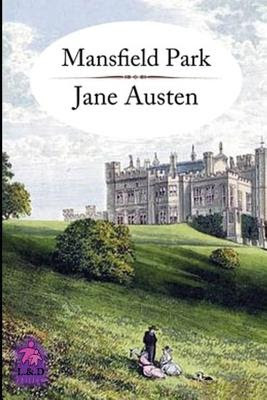
Mansfield Park by Jane Austen B-
This is not the first Jane Austen book I've read, though to be honest, I'm not sure what the other one was. I suspect it was Pride and Prejudice. But that was at least 30 years ago, and I only remember picking it off the classic shelf of the little library to read, nothing of the story. While I enjoyed this book, it is not one I'm going to reread every year or two, like true fans of Miss Austen.
My interest in this book is entirely due to my recent Georgette Heyer books. I wanted to see how a story written in the period would read, if only to compare it to the more recent, but certainly not recent, works of Georgette Heyer. If you are interested in the story itself, move along. You can find that on other places on the internet to satisfy that curiosity. So how does Heyer's Regency Books - the couple I've read - compare to this Austen book?
The Heyer books that I've read have much more colorful characters. Fanny Price, the main protagonist in this story is rather colorless and is no doubt meant to be so. She is, for the most part an observer rather than a player. Maybe you get to know all the main characters perhaps a bit deeper than in the Heyer books, but it's hard to say. You certainly get a lot more speeches in the Austen books, some go on for pages explaining their feelings. While the story in Mansfield Park has it moments of tension and drama, they are set within a fairly mundane venue. Well, the mundane venue of wealthy people who don't have to work for their living. This is true for the Heyer books as well. Almost no one in any of the stories I've read actually do anything. That's not quite true. The women sit around and sew things. All the time. And Sir Thomas, the master of Mansfield Park does have to go off to the West Indies to look after his business concerns there, but otherwise, all the characters in both this story, and in the Heyer stories I've read, fill their days with riding horse, riding in carriages, visiting, dancing, clubbing, and gambling.
In these stories there is a clear sense of the helplessness of women in society - the limits of their freedom, and how the clever ones can overcome some of these limits with wit, charm, and cunning. In both stories, one is introduced to a time when people were commonly in ill health, which often plays a role in the stories.
As one would expect, the Heyer books are written in a more modern style, than Austen's book. They move along quicker, have more action, and are less reflective. I read books for entertainment and, in the case of historical fiction, for an insight in to life in another place and time, so that I can not address the issues that Jane Austen may've been addressing in her story. I suspect that she was addressing issues, but they likely either went over my head, or were absorbed unconsciously.
While I enjoyed Mansfield Park, I read in two days, I can't say that it entirely enchanted me. There is an ever-so-slightly remove from the story in the narration, and indeed, Jane either ran out of time, paper, or interest, as the ending is rather unsatisfactory - a simple summarization of the fall out of the main plot resolutions. On the whole, while recognizing the worth of Jane Austen's Mansfield Park, I prefer the Georgette Heyer's stories I've so far read a bit more.
A side note: The 1999 movie of this novel is free on YouTube and I have given it 25 minutes of my time. Of course a 2 hour movie is not going to directly replicate a book, and one must expect things will be sliced, diced, and condensed. And from what I could tell, they were. Rather drastically. What was most telling, however, was the re-imagining of the heroine, Fanny Price. In the book she is quiet, submissive, rather sickly, intelligent, and observant, but is about as effervescent as dishwater, after washing the dishes. In the movie she is creative, cheerful, playful, unrecognizable from the Fanny in the novel. One could see why this transformation was necessary, but it is quite jarring and off-putting if you, like me, have the book fresh in your mind. In short, don't mistake the movie for the book.
March 12, 2025
Introducing The Darval-Mers Dossier
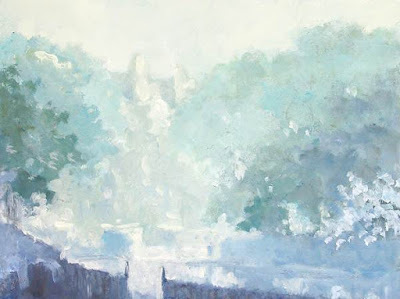
Back in January, with my part of Glencrow Summer done, save for the corrections as they came in, I turned my attention to my next writing project, my "Project 2027" i.e. my book for 2027 in my one-book-a-year plan. However, since I like to make hay while the sun shines, I, with something of a story in mind, sat down and started writing the first draft of my next book, The Darval-Mers Dossier. (Working title.)
So what is The Darval-Mers Dossier all about, you ask? (I hope.) Well, when, after finishing Chateau Clare, I said I wanted to write another story set in that world, one of my beta readers suggested that I write a "Red Wine Agency" story. Readers of Chateau Clare may recall a fictional series of books of intrigue of that name, which were set in the revolutionary period leading to the Second Founding. These Red Wine Agency books played a key part in that story. So when he suggested I write my own Red Wine Agency story, I thought, why not? Though, I will admit I put off tackling it until I finished the story I had already in mind, which came to be Glencrow Summer, also set in that world.
However, with Glencrow Summer written, save for corrections, I turned my attention to a story about Mr Redinal Wine. It quickly became clear to me that the type of story described in my book, was not the type of stories I write, unless there is there such a thing as "cozy thrillers. I found the prospect of writing a secret agent/detective story set in the cutthroat struggle between the Great House of Lorria rather daunting. Not being a reader of thrillers, I doubted that I could live up to their standard. And then, well there's my laziness. While I had built up the world for Chateau Clare and Glencrow Summer, a Red Wine Agency story needed to be set in a much earlier time period to be consistent with its appearance in Chateau Clare. This era was one were advanced technology was still being used, if slowly dying out. In short, a semi-new world to develop. Plus I would have to come with a backstory for Mr Wine to place him in the world and his trade. There had to be an easier way.
What I hit upon was to write a "prequel" to the main Red Wine Agency stories, a story set before Mr Wine became heavily involved in all the intrigues of that period. It would serve as the backstory for the character and his introduction to that trade. I also decided to write it in the form of an old fashioned mystery story, with the main character, i.e. the proto-Mr Wine acting like an amateur detective, who, following clues, solves the mystery. It even would have the classic who-done-it style exposition at the climax, though it's not a murder mystery. I don't do murder. Having decided on the form, and having come up with a fairly straight forward story, I started writing it on 6 January 2025 and finished the first draft of 48,014 words on 10 March. That's 63 days, or around 762 words per day on average. I usually average a bit over 1,000 words a day, but I didn't have a looming deadline, and I was working out a lot of things on the fly.
Now, 48K words is not a long book. My second drafts usually add around 10%+ more words as I add the descriptions I skimped on, and expand dialog and such, so its final world count could be close to the wordcount of The Prisoner of Cimlye which is 53K+ words. I think is fine, since Agatha Christie has said that the best word count for a mystery novel is between 40K and 50K. I'm happy go along with the master on this one.
Given that I have a first draft in hand, I believe that, unless life and/or death get in the way, I'll be able to release it before 2027. I'll put this on the shelf for maybe a month before tackling the second and third drafts. Given the shortness of this story, a month of revisions should do, after which there is proof and beta readings, and coming up with the cover art. Still, I'm looking to release The Darval-Mers Dossier a few years early; hopefully in June or July 2025. Between now and then, I will be providing more details about this story. Stay tuned.

March 8, 2025
The Saturday Morning Post ( No.94)

We're back down that rabbit hole again this week. What can I say, there are a lot of them, many of which are available at the library with no, or short waiting lists.
My reviewer criteria. I like light, entertaining novels. I like smaller scale stories rather than epics. I like character focused novels featuring pleasant characters, with a minimum number of unpleasant ones. I greatly value clever and witty writing. I like first person, or close third person narratives. I dislike a lot of "head jumping" between POVs and flashbacks. I want a story, not a puzzle. While I am not opposed to violence, I dislike gore for the sake of gore. I find long and elaborate fight, action, and battle sequences tedious. Plot holes and things that happen for the convenience of the author annoy me. And I fear I'm a born critic in that I don't mind pointing out what I don't like in a story. However, I lay no claim to be the final arbitrator of style and taste, you need to decide for yourself what you like or dislike in a book.
Your opinions are always welcome. Comment below.
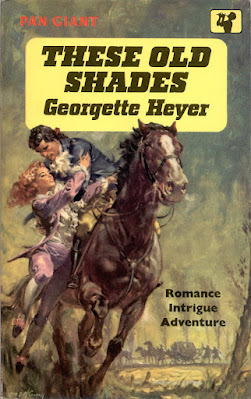
These Old Shades by Georgette Heyer B+
This story is set in pre-revolutionary France and England - 1740's - rather than in England's Regency period of some 70 years later. It concerns an English duke with half a dozen different names, and a young person who he "buys" to be his page - for a reason that slowly becomes apparent. This duke is notoriously coldhearted and ruthless fellow who is bent on revenge. The type of fellow, who having lost one fortune gambling, and wins another fortune from a young an foolish fellow who gambles with him and who ends up recklessly getting killed in a duel, it is said, as a result of his financial ruin. In short, he's not a very pleasant fellow, as we first meet him.
I found this book's beginning worrisome in that, as I said, the duke is anything but likeable, and the setting in Paris. However, as the story goes on it becomes much more enjoyable once it focuses on the fate of the very engaging "page." I can't really go into the details of the plot as it is hard to talk much about it without spoiling some of its secrets. Suffice to say there is a lot going on in the story, with plenty of action.
While romance seems to always be a feature of her stories, Heyer is very much a historical fiction writer, and a creator of a great variety of different, and often engaging characters, as well as a writer of witty dialog, which is always a plus for me. I do think that historical fiction of this sort is going to be my go-to genre for the foreseeable future.
I find it hard to grade these stories. I really enjoy them, but when I compare them to my A grade books, specifically the Brother Cadfael books, I have to admit that I find the Cadfael stories are better or perhaps, more appealingly written stories. Brother Cadfael and his friend Hugh, are rather dear to me. That said, I really have enjoyed all of the Heyer stories I've read so far. They could be A stories. It is only when I compare them to Peters' stories, do they fall just a little short.



